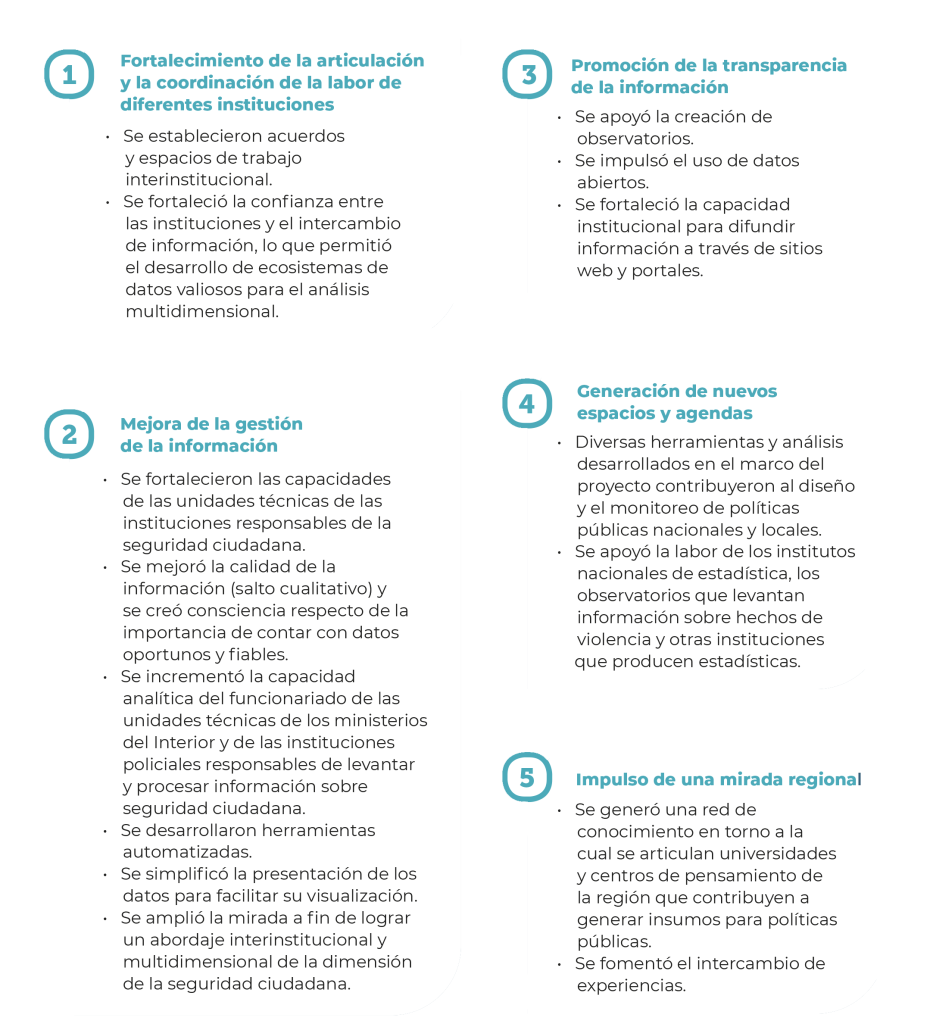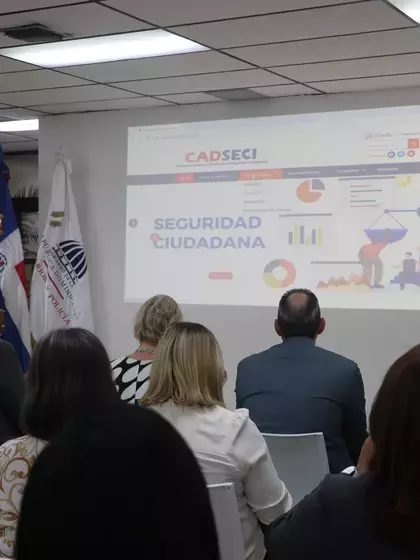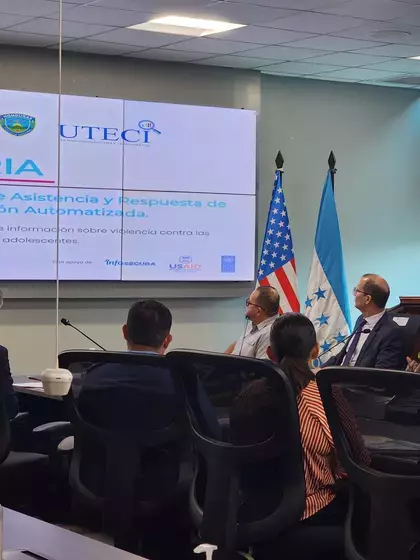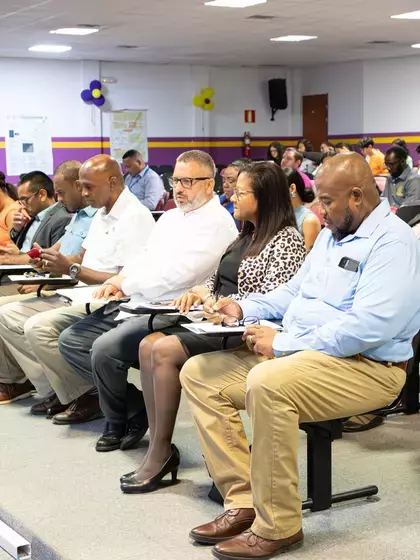InfoSegura: a commitment to innovation to improve citizen security

Quality data enables analysis to be accurate and reliable, making for appropriate and timely decisions that contribute to improving citizen security. In 2014, the InfoSegura Regional Project made a commitment to innovation, promoting data use and analysis as the most effective means for policy design and implementation for citizen security and justice in Central America and the Dominican Republic.
"The innovative model promoted by the Regional Project is a qualitative leap with respect to the way institutions in the region had been addressing the issue of citizen security," reads the recently published document titled, InfoSegura: An innovative proposal to improve the quality of citizen security information in Central America and Dominican Republic, systematizing the work achieved between 2014 and 2021. Addressing the issue with new vision has helped national and local institutions develop a more effective way to manage information on citizen security.
As a result of the actions the InfoSegura Regional Project implemented, "the capacities of public institutions and civil society to analyse available information on citizen security have been strengthened; dialogue among institutions and with civil society has been promoted, and evidence-based policy design using quality data and analysis has been fostered," the document notes. Among other achievements during this period, the government institutions in charge of information management have created a catalogue of 22 citizen security and gender indicators, and eight portals and open data observatories have been developed.
Main InfoSegura Project achievements 2014-2021

The document shows that the Regional Project supported the database integration and the creation of several integrated information systems, as well as early warning systems to strengthen the prevention and control of violence in schools. It has also developed various technological tools and indexes for "territorial prioritization and targeting, which have been adopted in the public policies of the three countries in the North of Central America."
The establishment of partnerships and strengthening mutual trust, information exchange and the construction of data ecosystems among the different agencies responsible for information management are other outstanding Project achievements. The project also promoted the creation of the Citizen Security Knowledge Network (CONOSE), which has been a springboard for a variety of research projects on issues related to citizen security, and contributed to building bridges between various state agencies and institutions and civil society.
"InfoSegura contributed to effective gender mainstreaming in citizen security policies. UNDP InfoSegura supported the creation of gender-responsive indicators and specialized research, such as the regional study on The Hidden Face of Insecurity: Violence against Women in Central America and the Dominican Republic." The InfoSegura Regional Project has also been promoting different national and regional campaigns to prevent violence against women and girls.
To download the document in Spanish click here.
To download the document in English click here.





